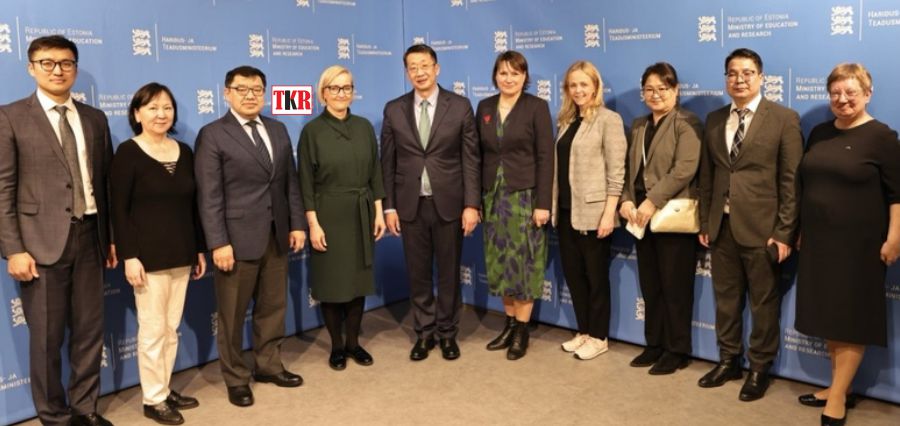Minister of Education and Science of Mongolia, L. Enkh-Amgalan, convened a meeting with Minister of Education and Research of Estonia, Kristina Kallas. Discussions revolved around reforms inspired by the outcomes of the PISA assessment, focusing on enhancing students’ reading proficiency and transitioning to electronic platforms, as reported by GoGo.
Estonia’s remarkable advancement in the PISA assessment, placing it at the forefront of European Union nations in the 2022 evaluation, was acknowledged. The country’s updated methodology for fostering reading skills among elementary students, emphasizing reading comprehension over speed reading, was highlighted.
Estonia has built one of the world’s finest education systems by blending a commitment to learning with equal-access technology. PISA tests have demonstrated Estonia’s success in promoting equity in education, ensuring that everyone has access to high-quality learning opportunities. The country employs a comprehensive school system designed to offer the best education to all students, irrespective of their backgrounds.
Schools in Estonia benefit from considerable autonomy. The national curriculum allows schools to tailor their own curricula, set educational goals, and determine areas of focus. Principals possess the authority to recruit and dismiss teachers, manage budget allocations, and assess the need for teacher training. Meanwhile, teachers have the autonomy to select textbooks and teaching methodologies suited to their lessons.
Education in Estonia is legally free, with the exception of private schooling options chosen by parents. In addition to tuition-free education, students receive support services as required, along with amenities such as free lunch, textbooks, and school transportation.
The academic year in Estonia encompasses a minimum of 175 teaching days (equivalent to 35 weeks), with breaks divided into four intervals.
Both parties proposed collaboration in educational accreditation, evaluation, and digital transformation.
Mongolia’s education sector faces challenges related to capacity building and legal framework clarification. The Minister expressed interest in partnering with HAKA and the Estonian Quality Agency for Education to address quality assurance, mutual recognition of qualifications, and credit conversion. This meeting focused on improving the education quality with addressing the current issues in the educational system. Moreover, analysing and adopting progressive methodologies could possibly open the vistas of improvements in different levels of the education system.
The meeting encompassed various aspects aimed at enriching education, including idea exchange, knowledge dissemination, and analysis of existing pedagogies to innovate new learning practices. Emphasis was placed on modifying curricula and methodologies with a fresh approach to enhance student engagement and understanding, ultimately leading to improved exam performance.









